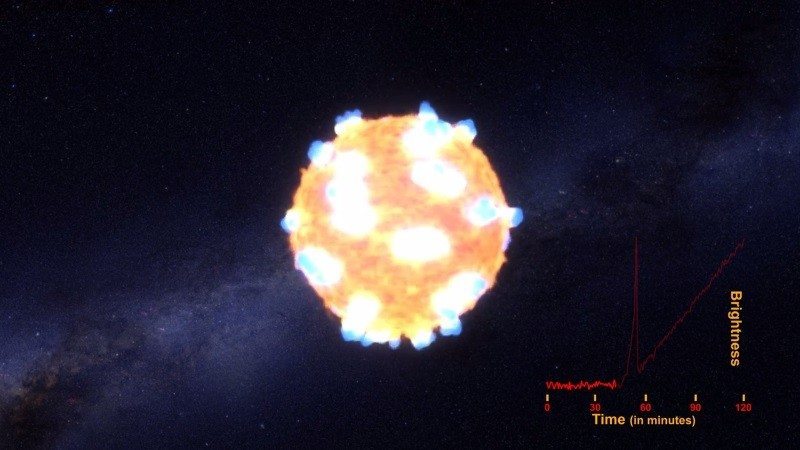Astronomers Observe Exploding Star for the First Time
Ashley Allen / 8 years ago

For the first time ever, astronomers have recorded the moment at which a star started to explode – known as the “shock breakout” – within the optical wavelength of NASA’s Kepler space telescope.
The astronomy team, led by Peter Garnavich, Professor of Astrophysics at the University of Notre Dame in Indiana, USA, monitored the light levels emitted by sources within 500 galaxies – around 500 trillion stars – over a three-year period in order to detect the early signs of a supernova. The observations led to Kepler monitoring two stars in particular – both red supergiants – that were on the verge of exploding. The massive stellar bodies, KSN 2011a and KSN 2011d, were around 1.2 billion light years away.
“To put their size into perspective, Earth’s orbit about our sun would fit comfortably within these colossal stars,” Garnavich explained on the NASA website.
KSN 2011a and KSN 2011d were then observed exploding. While the Type II supernovae of both stars matched known mathematical models of the phenomena, the explosion KSN 2011a was not preceded by the expected shock breakout.
“In order to see something that happens on timescales of minutes, like a shock breakout, you want to have a camera continuously monitoring the sky,” Garnavich said. “You don’t know when a supernova is going to go off, and Kepler’s vigilance allowed us to be a witness as the explosion began.”
The video below shows KSN 2011d exhibiting the shock breakout prior to its supernova:
“That is the puzzle of these results,” Garnavich added. “You look at two supernovae and see two different things. That’s maximum diversity.”



















